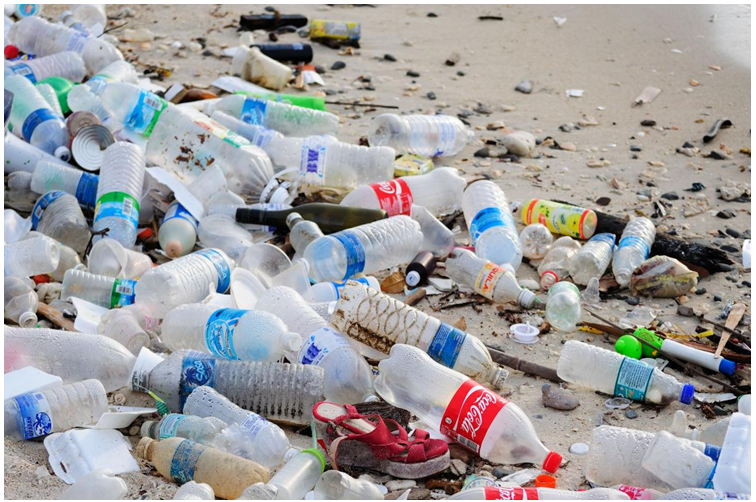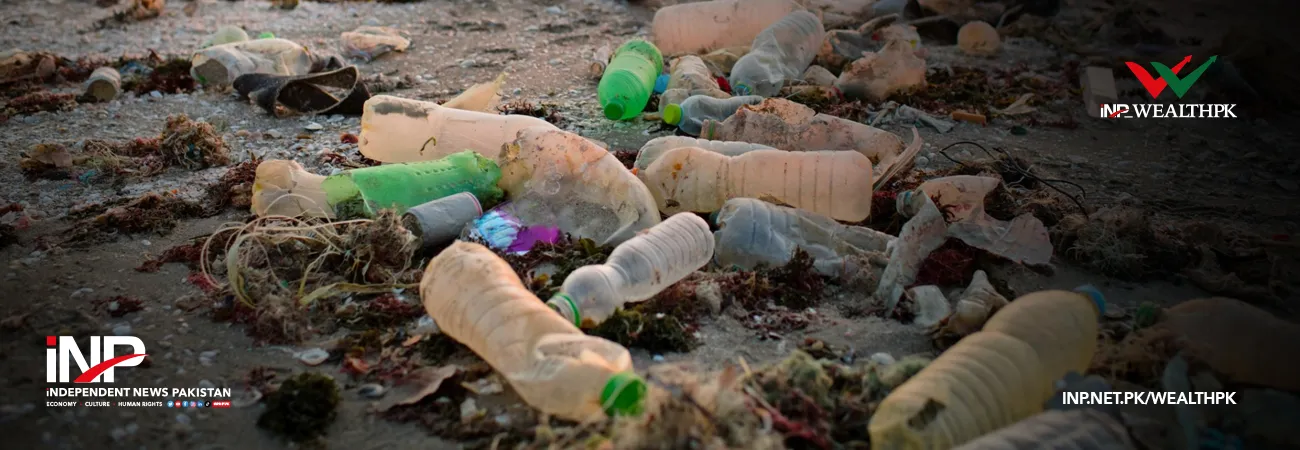INP-WealthPk
Arooj Zulfiqar

Addressing plastic pollution is pivotal for achieving sustainable development goals and advancing towards a circular economy. In Pakistan, inadequate waste management systems have exacerbated plastic pollution. “The excessive generation of waste significantly harms our environment. With rising urbanisation, managing waste effectively has become a global challenge. Pakistan, much like other countries, faces substantial plastic pollution issues," said Abid Qayyum Sulehri, Executive Director of Sustainable Development Policy Institute (SDPI), a think tank. Plastic pollution severely impacts both terrestrial and marine ecosystems. Since 1950, nine billion tonnes of plastic have been produced worldwide, with seven billion tonnes discarded. Currently, 11 million tonnes of plastic enter the oceans each year. “We are confronting a triple planetary crisis: climate change, biodiversity loss, and pollution, all intensified by plastic waste. This crisis impedes the right to a healthy environment and slows down sustainable development," Sulehri emphasised.
With over 220 million residents and a rapidly expanding economy, Pakistan generates approximately 20 million tonnes of waste annually, a large fraction of which is plastic. In 2020, the country produced 3.9 million tonnes of plastic waste, with 65% inadequately managed. Plastics account for 18% of municipal solid waste in Pakistan, and only 3% of the plastic used in manufacturing is recycled. According to the World Bank, merely 27% of Pakistan's plastic waste is recycled, with the rest accumulating in landfills or open spaces, where it can take centuries to decompose. A 2018 study by the Worldwide Fund for Nature identified Pakistan as one of the top 10 countries for plastic pollution, with an estimated 90% of plastic waste improperly disposed of.
Sulehri said, “To combat this problem, Pakistan needs to adopt a circular economy approach, emphasising waste reduction, reuse, and recycling. This requires the collective efforts of the government, private sector and civil society.” “A critical first step is to minimise plastic usage by promoting sustainable alternatives such as reusable bags, containers, and packaging. Government initiatives can play a key role by banning single-use plastic bags and encouraging the adoption of eco-friendly products,” he said. The Ministry of Climate Change has banned the manufacture, import, sale, purchase, storage, and use of polythene bags in the Islamabad Capital Territory. In February 2022, Pakistan introduced the National Plastic Action Partnership aimed at creating a framework for managing plastic waste and fostering a circular economy to reduce plastic pollution.
Credit: INP-WealthPk













